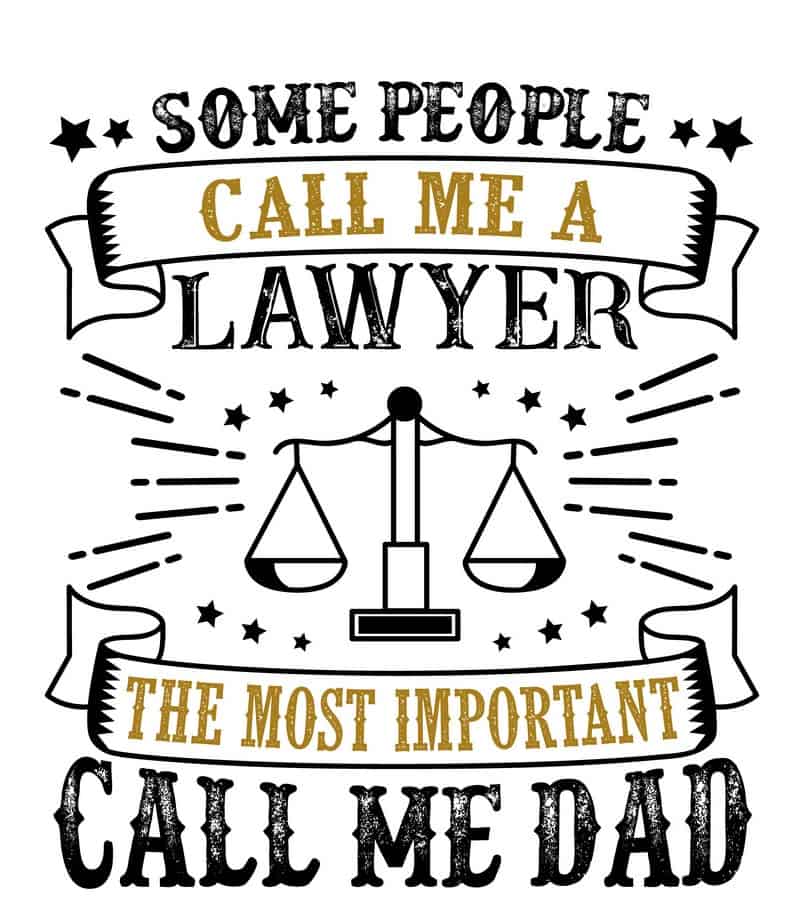A relative’s lawyer is commonly considered a method to acquire free or virtually free legal advice by many individuals in the community. How may an attorney represent a family member’s interests? Is it appropriate for a lawyer to represent a member of a family? You can give a qualified yes to the first part of the question. Just as they don’t interfere with litigants who represent themselves, courts often don’t meddle when letting a family litigant select their counsel.
There are various hazards in representing a member of the family. As a result, it’s hazardous since you already have a relationship that might affect your capacity to deliver competent and truthful counsel. There is a conflict of interest between a lawyer’s obligation to a friend or family and their duty to the legal profession. This post will acknowledge everything regarding an attorney representing a family member.

Can an Attorney Represent a Family Member?
Yes, an attorney can represent a family member. However, if there are any conflicts of interest or the attorney can not remain professional and objective, the attorney can not represent family members.
Example 1: Personal conflicts of interest between attorney and relative (client)
For example, a lawyer can not represent his wife in a divorce case where he is the husband. This is a conflict of interest because a lawyer is also a husband.
Example 2: Lawyer, family member, and another party
A layer’s family member or friend seeks representation from a family member’s attorney to sue a neighbor in the case of a civil claim. If the lawyer also represents the neighbor’s business, in this case, it would be a potential conflict of interest.
Example 3: Layer is the father, the mother is the wife and minor
Minor seeks representation from the layer (father) where the mother pays the bills, and there is a conflict between the mother and minor.
A lawyer is a legal matter representing one’s family members. If you practice in a particular state and handle a specific case, the answer to this issue may be obscured by mountains of fine print and grey regions. Divorce and end-of-life issues provide unique challenges, so research before moving forward. They should not take on any matter a lawyer stands to profit financially. A lawyer can’t defend someone who owns a portion of a Joint Family Property in court. To provide one example.
If the attorney is or may be a witness in the case, the attorney should not be present. For example, a lawyer cannot represent a family member who is accused of beating another family member. It is against the law for an advocate to practice in a court in which they are connected to the judge. To the judge, whether as a father-in-law, mother-in-law, son-in-law, daughter-in-law, brother or sister-in-law, and so on.
A family court seldom interferes with a litigant’s right to pick their lawyer or even with the option to represent oneself. Therefore, a court should have no problem permitting the mother to be represented by a previous lawyer who is also a family member. However, the court was concerned about the mother’s decision. The mother’s stepfather was not only barred from practicing law because of a current suspension by the Law Society of Upper Canada for failing to pay administrative costs, but he also had a history of misbehavior that included earlier bans.
The stepfather was legally a non-lawyer because of his suspension, even though he had been practicing law for over 30 years. Even while specific standards may permit non-lawyers to appear in court, the court is particularly worried about the stepfather’s lack of honesty, integrity & forthrightness if he had been to represent the mother in this instance. Even though the situation was uncommon, the court’s first concern was preserving the legal system’s integrity. To enable a disbarred or suspended lawyer to present in court would undermine the system’s fundamental principles. Therefore, even while the court denied the mother’s plea, it did so on the condition that she may either appeal Legal Aid’s decision or raise funds to pay her attorney.
Can my brother represent me in court?
If your brother is a lawyer, he might represent you in court in court. However, he can’t if he is not a lawyer; only attorneys can practice law. That’s because he doesn’t have the authority to speak on his behalf, and you would lose if he turned up and you didn’t. You can’t represent someone else in court if you aren’t a lawyer. If you require legal representation, you must retain an attorney; nonetheless, you may be required to attend court on the scheduled day. A lawyer may show up on your behalf and get the case adjourned to a later date, or they could try to work out a deal in advance, such as agreeing to the violation you’ll plead guilty to and making arrangements to pay the fine. You should call an attorney promptly.
In addition to the advantages, representing your relatives may have disadvantages. Open communication and mutual understanding amongst all parties are essential for mitigating any harmful consequences that may arise. Be honest about how likely you will win the case for just a family member. Ensure they know the truth about their case’s chances of success and the possible consequences if it doesn’t.
Your reputation with the entire family may suffer if you represent a loved one who loses their lawsuit. In addition, when a tough legal battle involves a close family member, emotions might run high. Has this person’s presence influenced the way you go about your daily routines? Can you remain reasonable and objective despite your feelings to reach the best possible conclusion? It would be best to balance the benefits and drawbacks of defending your family before deciding.
What is the Risk of representing you in court?
There are multiple Risks, such as having issues receiving payment from a family member or reducing your professional attitude since you are dealing with human relationships.
So, when does it become risky for a lawyer to represent a client’s family or friends? First, a lawyer may not be insured to work for family members, even though the regulator’s guidelines do not expressly prohibit it. For example, in British Columbia, a provision in the state’s mandatory professional liability insurance policy excludes coverage for claims stemming from errors in which a payment is made to the lawyer, their family, or the company itself. It is because a partner (including a common-law spouse), children, parents, & siblings are all considered family members.
In other words, imagine that an attorney resolves a personal injury claim for a family member and is subsequently held liable for professional negligence because of how they handled the case. It will not be covered when a family member benefits directly from the litigation. When representing relatives and friends, taking up a legal problem in a field of law that is not their area of expertise might be a risk. A family member may seek a lawyer to represent them, even if the lawyer lacks knowledge in the field of law. Attorneys should stay away from new areas of practice.
Despite Joe Pesci’s success in “My Cousin Vinnie,” a lawyer representing the family in court doesn’t always come out on top. For the 1992 company, a Brooklyn personal injury lawyer who had no trial experience and had failed the bar exam five times managed to get his cousin off the first murder charge despite not having any trial experience.
Even while defending a close family member, a lawyer risks falling short of the usual standards they might apply to any other employment. As a lawyer, you should be able to prepare a will easily.’ In contrast, if you’ve spent much of your career focusing on intellectual property or commercial law, you may have little idea what goes into writing a will.
The question of how a lawyer will be compensated when representing a member of one’s family or close friends can be a source of some uncomfortable situations. Sometimes, friends and family members may demand a “friends and family” discount, and they may not pay promptly. And, of course, firing a client who is a family member or a close friend is more complicated.
Due to the closeness of the connection, the lawyer may be overly informal. Files may not be opened, steps may be missed, communication may be outdated, and agreements and instructions may not be documented. For free or at a reduced charge, a lawyer doing a good deed for a friend or family member may not pay the same attention to detail as they would for a regular client.
Conclusion
It’s not always immoral to represent your family, although navigating grey ethical areas is possible. It’s possible to place yourself in an unintended attorney-client relationship if you give legal advice to your family over a dinner table discussion or gathering. If a family member insists on your advice regarding whether their employees or landlord can do anything, try to organize a session at your office during work hours.
The most important thing is to keep your family members’ professional representations open and honest. You may have to decline the chance if you cannot see and represent a family member. Everyone in your family who cares about your business will realize that you must maintain the highest professional standards for the company. We hope you have acknowledged everything regarding an attorney representing a family member.

